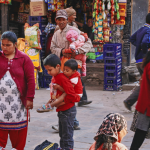In the digital age, the intersection of cybersecurity and democratic liberties has become increasingly complex, posing a crucial challenge for governments worldwide. Sri Lanka, in its pursuit of strengthening online security, introduced the ‘Online Safety Bill’ in September 2023. This legislation aims to regulate specific online content and establish the Online Safety Commission, marking a significant juncture in the nation’s digital governance.
However, the Bill has led to fervent debates among legal and academic circles on how the provisions impact fundamental rights and freedom of expression. In a recent ruling, the Supreme Court affirmed the Bill’s constitutionality pending Committee Stage amendments, which has added to the urgency of discussions surrounding its potential pitfalls and virtues.
Key Concerns: Ambiguity and Sweeping Powers
There are various concerns that rise from the Bill’s ambiguous language and the sweeping powers it vests in an Online Safety Commission. Empowered by the President of the country, this Commission will hold authority over content dissemination and service providers. This raises concerns about excessive governmental control and the potential overregulation of online activities.
Moreover, critics have raised eyebrows at the Bill’s extensive list of offences and stringent penalties, fearing that these may be misused as a means to suppress dissent and hinder the free flow of information, under the guise of maintaining order and safety.
These offences, lacking specific definitions within the legislation, pose a significant risk of subjective interpretation. For example, there is no clear delineation for terms like “bots,” “cheating” “online platform,” “impersonation,” “offending religious sentiments,” or “religious feelings.” This means that there lies a profound risk of flawed or biased interpretations of how these terms are applied.
In addition to this lack of definitions, there is an absence of clear boundaries for these offences. This creates a scenario where law enforcement might be prone to subjective biases or misinterpretations and may stifle dissent, restrict freedom of expression, and impede the free flow of information online. Particularly worrying are provisions such as “cheating by impersonation,” “communication of false statements to offend religious sentiments,” “outraging religious feelings,” “intentional insult to provoke a breach of peace,” and “circulating false reports to cause mutiny or offences against the State.”
It is important to note that the penalties for these offences include imprisonment for up to five years and/or substantial fines. This can lead to an atmosphere of self-censorship and reluctance to engage in legitimate discourse or expression for fear of inadvertently violating ambiguous provisions.
Additionally, the concentration of authority within the Ministry of Public Security has sparked concerns about the exercise of excessive control over online activities and heightened worries about censorship and information constraints. There is also a question of timing: the Bill has been introduced simultaneously with the Anti-Terrorism Bill. This has led to scepticism regarding the true intention of the Bill. It has also prompted worries about the potential implications of both these legislations on democracy and human rights.
Impact on Specific Communities: Women, Children, and the LGBT+ Community
The Bill’s potential impact on specific vulnerable communities will also be substantial and hence must be understood.
The prevalence of online harassment, abuse, and threats against women is a significant reality. As it stands, the Bill’s provisions hold the potential to create a false sense of security while inadequately regulating and addressing the core issues. There is a possibility that provisions might be manipulated to suppress women’s voices. The extensive list of offences outlined in the Bill raises the risk of censorship or punitive actions for advocacy or critical discussions on gender-related matters. Additionally, women from marginalised backgrounds might bear a disproportionate burden of these measures, exacerbating existing societal inequalities.
Children, especially those lacking adequate knowledge to navigate online platforms safely, face inherent risks within the digital sphere. While safeguarding children from online threats is crucial, the broad range of offences outlined in the Bill might have unintended consequences, impeding access to educational materials and hindering age-appropriate discussions on socially relevant topics.
However, the Bill’s explicit categorisation of child abuse in online spaces as a punishable offense is a noteworthy positive. This provision entails penalties of up to 20 years of imprisonment, fines, or both, along with provisions for compensating affected children, standing out as a crucial aspect of the Bill’s framework.
The Online Safety Bill has raised grave concerns within the LGBT+ community. Online spaces often serve as a sanctuary for individuals exploring their identities, seeking support, or connecting with like-minded peers. However, the Bill may curb open discussions and the creation of support networks for LGBT+ individuals. This is because historical discrimination and violence against the LGBT+ community increase their vulnerability to the misuse of the Bill’s provisions. There’s a palpable fear that these measures could be exploited to silence LGBT+ voices, hindering their freedom of expression and suppressing their online presence.
A distressing precedent lies in the existing provision of ‘Cheating by Personation’ in Section 399 of the Penal Code. This provision has led to a belief among law enforcement that transgender individuals might alter their gender identity to commit crimes, resulting in cases filed against transgender individuals alleging they have “misled the public.” The fact that such offences are mentioned in the Online Safety Bill intensifies the community’s concerns.
It is imperative to ensure that the Bill does not serve as a tool for censoring or discriminating against these groups and respects their right to privacy and expression.
Parallels Drawn: Insights from Bangladesh’s Digital Security Act 2018
Drawing parallels with Bangladesh’s Digital Security Act illuminates the potential trajectory of Sri Lanka’s Online Safety Bill. Originally aimed at ensuring digital security and combating cybercrimes, the Act has reportedly been widely misused to suppress criticism and limit freedom of expression, especially online. It has targeted various individuals, including journalists, politicians, business people, students, educators, and government officials, raising concerns about political manipulation and oppression. Despite its intended objectives, the DSA appears to have become a tool to silence dissent, leading to numerous arrests and charges, with individuals awaiting trial or imprisonment. The weaponisation of the Act to curb freedom of expression has sparked protests and demands for amendments across the country.
The Bangladesh experience serves as a cautionary tale for other countries, including Sri Lanka. The DSA’s misuse underscores the potential consequences of enacting repressive laws in the name of cybersecurity and public safety. It is imperative that Sri Lanka approaches online safety legislation with caution, ensuring a balance between digital security and upholding democratic values. The focus should be on preventing the infringement of constitutional rights and freedom of expression, especially for vulnerable communities, to avoid sliding into digital authoritarianism.
Conclusion: A Call for Deliberation and Safeguarding Democratic Values
In essence, while the intent of the Online Safety Bill might be to strengthen digital security, its implementation could transform it into a tool of suppression. Sri Lanka stands at a crucial crossroad where thoughtful amendments, intersectional considerations, and an unwavering commitment to democratic values can pave the way for a resilient and secure digital future without compromising fundamental freedoms.
Ashvina Sinnetamby, Program Officer, iProbono Sri Lanka.







